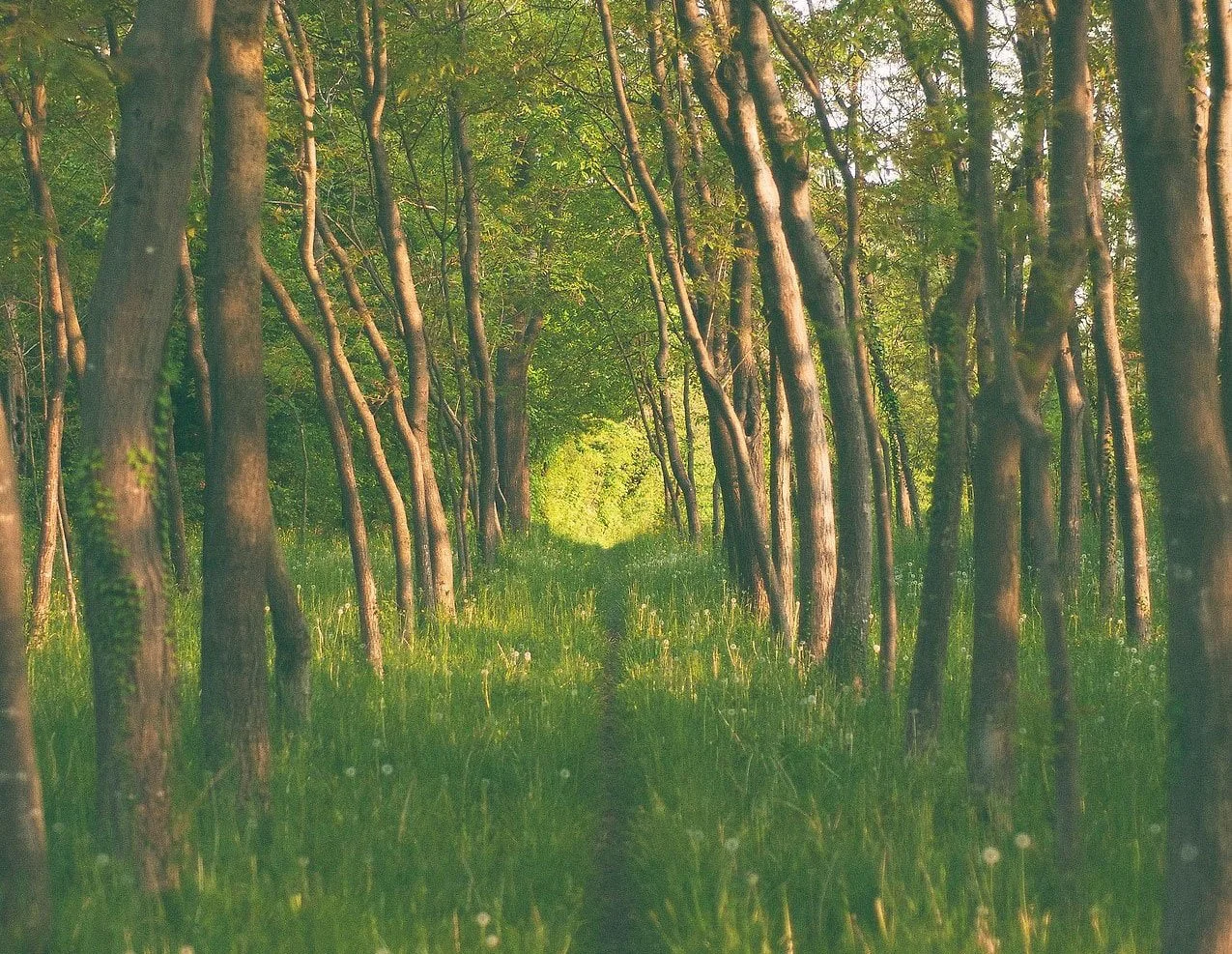Josué invites us to challenge extractive and colonial lenses by embracing the overwhelming force of the creative urge. How might we break apart from the constant pressure of social media to envision the new modes of creation and creativity that these stories need in order to be told?
Read MoreJarod (@cryptonaturalist) reminds us, limits are nourishing within poetry, and can be a virtue in life. If we accept the messy, twisted, and gnarled realities of life, we can escape the cold and dead store bought narratives about who we are supposed to be and instead lean into real freedom.
Read MoreTricia Hersey joins Ayana to unwind the complicated ties of exhaustion and exploitation. Tricia’s words serve as incantations against the brainwashing of grind culture as she and Ayana investigate the systems that benefit from keeping us stagnant.
Read MoreMaya introduces listeners to the science behind forest fires and urges us to see fire as not simply “destructive,” but rather as one of the many cycles of earth. From practices of cultural burning to current studies on post fire diversity, the creative and regenerative power of the forest cannot be overlooked.
Read MoreVandana and Ayana piece apart the threads of our global culture that lead to exploitation and extraction - focusing on the policies of division and distraction that keep us from each other. The divisions that world-leaders focus so much time on are created in order to dominate and exploit the nature on which the earthly community depends.
Ismail guides listeners through an overview of where we are in our relationship with drugs in the American context, and how this relationship is indicative of our relationship with the Earth and with humanity broadly encouraging us to move beyond the black and white view that some drugs are medicine while others are criminal.
Read MoreLark shares about the relentless and direct activism Appalachians Against Pipelines has been doing to stop the pipeline, build community resistance, and advocate for the needs of their communities in the face of developers, oil and gas advocates, and a continued disregard for Appalachian voices.
Read MoreAntonia dives into the tension that exists in living in and caring for lands that have been violently colonized, calling listeners to understand plants both in the ways that colonization has affected their legacies, and within anti-colonial structures that suggest there are other ways to engage with the plants around us.
Read MoreMimi’s work is grounded in the question: “How do we find new ways to talk about what hurts?” Flipping diagnosis on its head, Mimi guides us to find new ways to name what we feel and to decolonize the language of feeling itself.
Read MoreBrett shares how mass-incarceration and climate change are not crises of the individual, but of our culture. The abolitionist imagination may be the key to a collective future– as Brett reminds listeners that one can be both practical and utopian.
Read MoreBayo Akomolafe guides listeners on a journey to lose oneself and leave behind the ties that bind us to world views that do not serve humanity’s wholeness. Bayo challenges us to lean into the “political un-project” that is fugitivity, blurring societally-imposed binaries, in order to better understand the human territory and to make more-than-human sanctuary through post activism.
Read MoreDr. Carroll pushes back against dominant settler histories about Cherokee migrations and relations to homeland and provides insight into what audience members ought to glean from Indigenous philosophies imparting practices of deep reciprocity, responsibility, and relationship to the land and each other.
Read MoreDr. Osorio guides us into a fuller understanding of aloha by returning the commodified phrase to the more extensive understanding of aloha ‘āina, wherein the possibilities for other worlds are not only born but remembered and recalled from the long history of sovereign Hawai’i and traditional Hawaiian teachings and lifeways.
Read MoreAyana and Linda discuss what will be left in the wake of COVID-19, how will we tend to the wounds of disposability? What systems will endure? What must we dismantle and what will we grow? How can we deepen our actions so that they are not just a response to fear, but are rooted in the promise of collective wellbeing?
Read MoreRichie and Ayana examine how harmful patriarchy is to us all, why we must let go of our limited understanding of crime, the geography of prisons, and meaningful and revolutionary organizing in prisons.
Read MoreK’asheechtlaa shares the oral history of herring abundance in context to what a typical herring harvest looks like today, industry’s inability to act with reverence, and how Herring Protectors are working to protect the herring and the culture tied to them.
Read MoreDr. Shiva warns that the ruling class operates from a place of fear of any being alive and free on their own terms. We end this conversation with a call to a paradigm shift away from capitalism, control and fear to one of partnership with the earth.
Read MoreIn this powerful conversation with land defender Sii-am Hamilton, we are invited to discuss futuristic ways forward in recognition that Indigenous communities have been practicing creative resistance against colonialism and capitalism for hundreds of years.
Read MoreIn the shift from panic to practice, visionary fiction is vital medicine, and adrienne guides us to stretch our minds to see a future beyond what the confines of white supremacy, colonialism, heteropatriarchy, and capitalism tell us is possible.
Read MoreCorrina reminds us that Ohlone territory still holds tremendous abundance and that the land can sustain us in a way that would provide for our wellbeing should we choose to really re-examine what it is we need to survive.
Read More













![LINDA BLACK ELK on What Endures After Pandemic [ENCORE] /293](https://images.squarespace-cdn.com/content/v1/5403e5dbe4b04db10d1d362b/1586810356340-THJYPOB41BMWE1GAZ9EH/171_LindaBlackElk_For-The-Wild-Podcast_Image.jpg)
![RICHIE RESEDA on Dismantling Patriarchy [ENCORE] /292](https://images.squarespace-cdn.com/content/v1/5403e5dbe4b04db10d1d362b/1566236374984-HQZYYRFK2VASBC6UROFV/134_Richie-Reseda_For-The-Wild-EpisodeImage_1x1-2.png)
![K’ASHEECHTLAA - LOUISE BRADY on Restoring the Sacred [ENCORE] /288](https://images.squarespace-cdn.com/content/v1/5403e5dbe4b04db10d1d362b/1614952742229-R4ZLOOCN8CIQUX3MP6MX/Louise-Brady_For-The-Wild_Yaa-at-Woone_Still-4_Lee.jpg)

![SII-AM HAMILTON on Respect-Based Futures [ENCORE] /279](https://images.squarespace-cdn.com/content/v1/5403e5dbe4b04db10d1d362b/1647971243232-C9IP192OJO9ZDFP859K0/Sii-Am_Hamilton_For-The-Wild-Podcast_Episode3.jpg)

![CORRINA GOULD on Settler Responsibility and Reciprocity [ENCORE] /277](https://images.squarespace-cdn.com/content/v1/5403e5dbe4b04db10d1d362b/1647449812310-T5MVLHRMBON1JHIEMB0Z/Corrina-Gould_For-The-Wild_Post2-1.jpg)